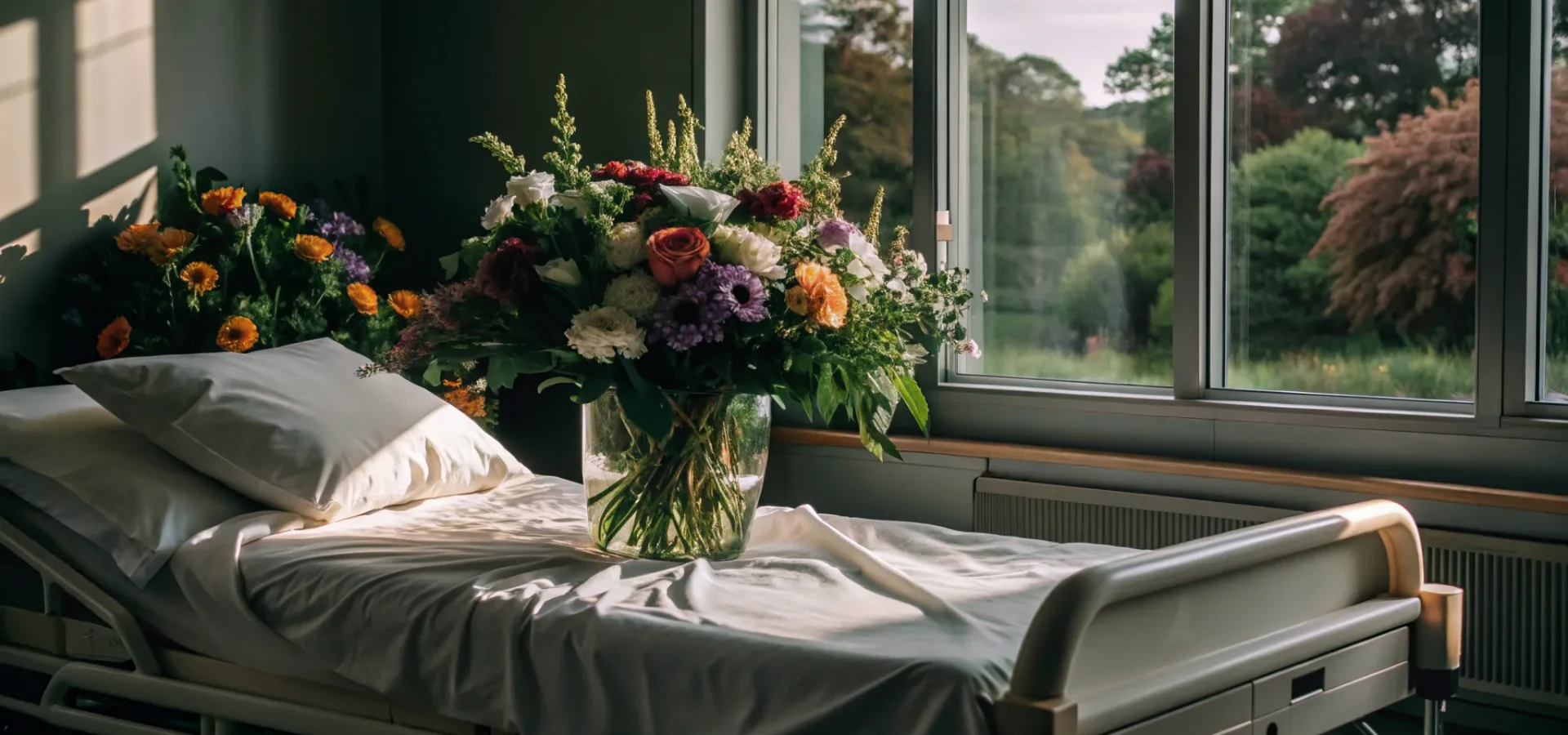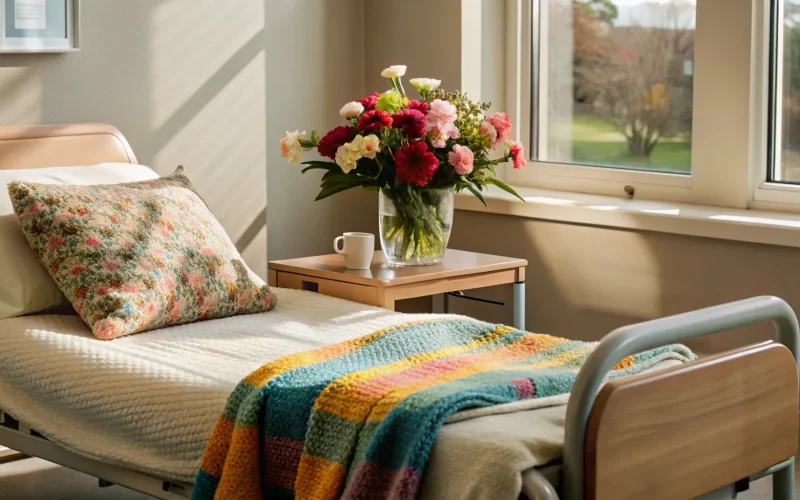Completing your last round of chemo isn’t just an end; it’s the beginning of reclaiming your life post-cancer treatment. It’s natural to feel a whirlwind of emotions—from triumph to trepidation—as you step into this new phase. By acknowledging these feelings and preparing for what comes next, you can embrace your journey with strength and optimism.
Key Takeaways
- Embrace Mixed Emotions: It's normal to experience a range of feelings after finishing chemotherapy. Acknowledging and accepting these emotions is a vital part of the healing process.
- Focus on Recovery and Support: Anticipate physical and emotional changes post-treatment. Lean on family, friends, and support groups for strength and guidance through this transition.
- Plan for the Future with Positivity: Set short-term goals to build confidence and consider long-term aspirations to maintain motivation. Celebrate milestones to recognize your resilience and progress.
The Emotional Milestone of Completing Chemotherapy
Finishing chemotherapy is a momentous occasion, a blend of relief and anticipation. It's a time when many patients feel like they’ve climbed a mountain, only to find themselves standing on a new peak, gazing at the journey ahead. The emotions that accompany this milestone can be as complex as the treatment itself.
Acknowledging Mixed Emotions
It's not uncommon to feel a mix of emotions after completing chemo. Relief at having finished treatment can coexist with anxiety about what comes next. According to LBBC, finishing chemotherapy might bring about feelings of accomplishment while also being emotionally challenging. During treatment, there’s often little time to process everything that's happening. Once it ends, emotions that were previously set aside may come rushing in.
Embracing these feelings is crucial. Allow yourself the space to feel joy for what you’ve accomplished and acknowledge any fears or uncertainties without judgment. These mixed emotions are not only normal but are an essential part of healing.
The Power of Positivity
While it’s important to recognize all your emotions, maintaining a positive outlook can be incredibly beneficial during recovery. As noted by MD Anderson Cancer Center, positivity doesn’t mean ignoring challenges; rather, it involves focusing on the strength you've shown and the hope for what’s next. This mindset can provide the resilience needed to navigate post-treatment life and help in setting the stage for future health and happiness.
What to Expect After Your Last Chemo Session
Transitioning from active treatment into recovery involves both physical and emotional changes. Understanding what lies ahead can help ease this shift.
Physical Recovery
After chemotherapy, your body begins its healing journey. Common physical changes include fatigue, which may linger for weeks or even months as your body recovers from the rigorous demands of treatment (CamWell). Hair regrowth is another significant milestone; while it might take some time, many find comfort in seeing their hair return as a sign of healing.
Additionally, you might notice changes in appetite or taste preferences as your body resets itself post-chemotherapy (WebMD). It’s important to listen to your body during this period and allow yourself plenty of rest and nourishment.
Emotional Adjustments
Emotionally, moving from active cancer treatment into post-treatment life can be disorienting. The structure that once dictated daily routines suddenly shifts, leaving room for uncertainty but also opportunity (Mayo Clinic). It's common to experience a sense of loss over no longer having regular medical appointments or check-ins with healthcare providers—a routine that provided reassurance during treatment.
This transition period is an ideal time to reestablish personal goals and rekindle interests that may have been sidelined during treatment. Engaging with activities that bring joy and fulfillment can aid in emotional recovery by providing focus beyond cancer care.
Preparing for Post-Chemo Scans and Check-Ups
As you move forward after chemotherapy, follow-up scans and appointments become essential components of ongoing care.
Understanding the Purpose of Scans
Follow-up scans play a crucial role in monitoring your health post-treatment (MD Anderson Cancer Center). These scans help detect any signs of recurrence early on when intervention is most effective. They offer both reassurance and vital information about your recovery progress.
Managing Scan Anxiety
Feeling anxious about upcoming scans is perfectly natural but there are strategies that can help manage this stress (Macmillan Cancer Support). Preparing mentally by understanding what each scan entails can alleviate some uncertainty—ask questions if anything feels unclear beforehand so you know exactly what will happen during each appointment.
Consider practicing relaxation techniques such as deep breathing exercises or meditation before appointments; these methods have been shown effective in reducing anxiety levels significantly before medical procedures take place (American Cancer Society).
Building a Support Network
Transitioning from cancer treatment to recovery is a journey best traveled with a strong support system by your side. Having the right people around you can make all the difference in how you navigate this new chapter of life.
Engaging with Support Groups
Support groups can be a lifeline, offering both emotional comfort and practical advice. By joining a cancer support group, you connect with others who truly understand your experience. These groups provide a space to share stories, gain insights, and find solace in the shared journey of recovery. Whether you're looking for tips on managing side effects or just need someone to listen, support groups can reduce feelings of isolation and bolster your emotional well-being.
Leaning on Family and Friends
Your loved ones are your cheerleaders and pillars of strength. Family and friends play an indispensable role by providing not only emotional support but also practical help—whether it’s accompanying you to follow-up appointments or assisting with daily tasks. Their presence can offer comfort during moments of uncertainty, reminding you that you're not alone in this journey. Encouraging open communication about your needs and feelings will help them better support you through recovery.
Setting Goals for the Future
As you move forward, setting personal goals can be both motivating and empowering. Goals give you direction, helping transform hope into tangible steps toward a fulfilling future.
Short-Term Goals
Start small. Short-term goals are essential building blocks that boost confidence and create momentum. Consider goals like re-establishing daily routines, engaging in light physical activities, or exploring new hobbies that pique your interest. These manageable targets provide immediate satisfaction and pave the way for bigger aspirations.
Long-Term Aspirations
While short-term goals keep you grounded in the present, long-term aspirations inspire future possibilities. Think about what truly excites you—be it career advancements, travel plans, or personal projects you've always wanted to pursue. Setting long-term goals encourages reflection on what matters most to you now that you've emerged from treatment stronger than before.
Celebrating Your Journey
Reaching the end of chemotherapy is no small feat; it's an achievement worthy of celebration! Recognizing this milestone allows for reflection on how far you've come and reinforces your resilience.
Reflecting on Achievements
Take time to look back at your journey—acknowledge every challenge faced and overcome along the way. This reflection helps solidify inner strength while celebrating progress made throughout treatment.
Planning a Celebration
Marking this momentous occasion doesn’t have to be extravagant; even simple gestures hold profound meaning when shared with loved ones who supported you throughout treatment celebration ideas include hosting intimate gatherings at home or planning special outings tailored specifically towards relaxation after months spent focusing solely on health concerns—a well-deserved reward as life begins anew post-treatment!
Embracing Life Beyond Cancer
Completing chemotherapy marks a significant turning point, not just in treatment but in life itself. It's a testament to your strength, resilience, and determination. As you step into this new chapter, remember that every emotion you feel is valid and part of the healing process. Embrace each moment with courage and an open heart.
Surround yourself with those who uplift you, lean into the support of loved ones and community groups, and never hesitate to reach out for guidance when needed. Setting goals—both big and small—can help chart a path forward, providing motivation and purpose as you build your future.
Celebrate each milestone along the way, no matter how small it may seem. These moments of joy are reminders of your journey's triumphs and the incredible progress you've made. As life unfolds beyond cancer treatment, let hope guide you toward a fulfilling and vibrant future filled with endless possibilities. You've conquered so much already—imagine what more awaits!
Related Articles
- Starting High Dose Chemo: What to Expect and How to Prepare
- #KnowYourBalls Survivor Story – Brent Dirks
- A Journey of Triumph: Celebrating Resilience and Hope in Testicular Cancer Survivorship
- What do I do after treatment?
- Navigating Testicular Cancer Treatment Options
Frequently Asked Questions
What emotions can I expect after finishing chemotherapy?
It's common to experience a mix of emotions, including relief, anxiety, joy, and uncertainty. Acknowledging these feelings is a crucial part of the healing process. It's okay to feel a whirlwind of emotions as you transition into post-treatment life.
How can I manage physical changes after chemotherapy?
Post-chemotherapy recovery often involves dealing with fatigue, hair regrowth, and changes in appetite or taste preferences. Listening to your body and allowing yourself plenty of rest and nourishment are key steps in your physical recovery journey.
Why are follow-up scans necessary after treatment?
Follow-up scans are important for monitoring your health and detecting any signs of recurrence early on. They provide reassurance about your recovery progress and help healthcare professionals intervene promptly if needed.
How can support groups help during my recovery?
Support groups offer emotional comfort and practical advice by connecting you with others who understand your experience. They provide a space to share stories, gain insights, and find solace in the shared journey of recovery. Engaging with support groups can reduce feelings of isolation.
What are some ways to celebrate completing chemotherapy?
Celebrating this milestone can be as simple or elaborate as you wish. Reflect on your achievements and consider hosting intimate gatherings with loved ones or planning special outings for relaxation. Celebrations mark the end of one chapter and the beginning of a new journey toward wellness.





